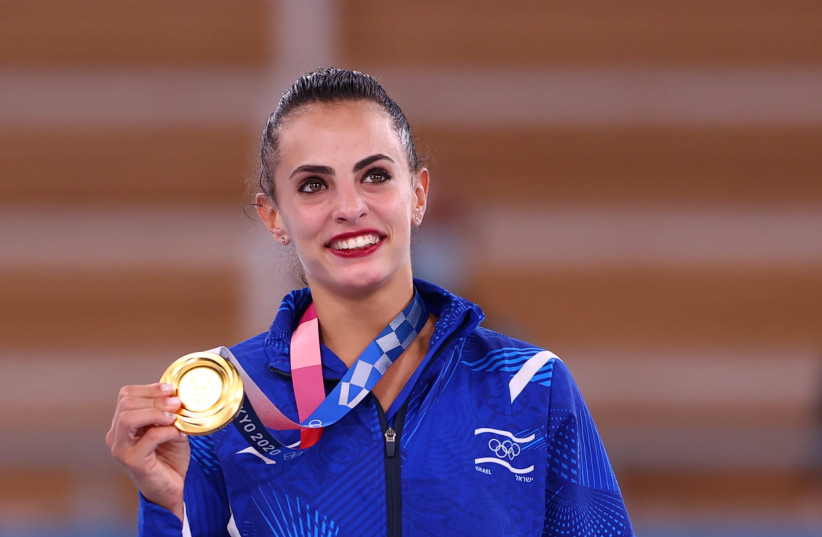Ironically, while sporting competition often pits two people or sides against each other, sport as a whole is a unique unifier both across countries and within societies.
It is this unifying aspect of sports that served as the framework for a fascinating panel titled "Olympics as a Bridge" at The Jerusalem Post Group's congress on Thursday at Tottenham Hotspur Stadium in London.
For more panels and interviews from The Jerusalem Post London Conference, click here >>
Featuring Olympic Committee of Israel President Yael Arad – Israel’s first Olympic medalist (Barcelona 1992) – and British Olympic Association Chairman Rt Hon Sir Hugh Robertson, a number of intriguing issues were covered, including sporting development in Israel, the expansion of technology in the training world and the increasing insertion of political agendas and social advocacy into the athletic arena.
Arad began by discussing the growing success of Israeli athletes in international competitions, most notably the Olympics.
"You can see such a change throughout the country, Israeli sports is for sure getting better over time," noted the former Olympic silver medalist in judo. "It isn't just the medals we are winning, but the amount of finals our athletes are reaching, which is really a great indication of growth. As well as the diversity of the different sports in which we excel. Before we used to win in judo and windsurfing, but now we are producing some of the top gymnasts in the world as well."

Robertson, who obviously leads a much larger sports body than Israel, concurred.
"You need to be focused, and a production line that continues to produce athletes tells you that the production is right. You need coaches, staff, money, but also a culture of success, which breeds more success."
Arad gave a nod to the Brits and said that Israel takes its lead from the other great sports countries.
"We looked closely at GB’s preparations for Tokyo. Today in Israel we give 80% of the budget to 20% of the athletes, because we have learned that success comes by giving more support to sports in which we believe we can succeed. Also, sports are long cycles, not from one year to another. Talent doesn't just appear out of nowhere one day, it has to be developed over the life of an athlete from childhood. And I think we have our eye on the big picture. In Tokyo we had 18 finalists, which corresponded with our investments. If we want to be more successful in Los Angeles 2028 we have to invest in youth today, not just senior-level athletes."
As with most industries today, the impact of technology on sports is enormous and impossible to ignore.
"In the world of sports today technology is super important," explained Arad. "In Israel, we work with the Technion, we bring the coaches and professors together. When I was a professional we trained and worked hard, but now there is another element."
"Yael is absolutely right, technology can give you an edge," noted Robertson. "Winning results are often a matter of fragments of seconds. Israel is known for its tech, which can give it an advantage going forwards."
While sports have tended to try and remain an apolitical endeavor globally, they also hold great power to help bring about change in the world. Arad and Robertson both discussed whether it is appropriate for Russia and Belarus to be excluded from international sports competitions as a result of the invasion of Ukraine.
"The International Olympic Committee usually doesn’t let countries use politics against each other. For Russia, one of the main values of the Olympics was bridging – the solidarity between nations, and I feel that it is a right decision to exclude Russia, and let the athletes around the world compete and be safe."
Robertson took a slightly more nuanced approach, especially when posed with the question of whether one day Israel may be boycotted by Arab nations.
"I never supported boycotts, one because it doesn’t work and two because young athletes don’t deserve it....I also think this case with Russia is different...and I am absolutely not worried that this will lead to a 'slippery slope' of the sports world becoming politicized.
"In China, for example, we were against a boycott because we still maintain business and cultural ties. Israel is the only functioning democracy in the Middle East and should not be confused with Russia, we will never support sanctions [against the Israelis]."
Arad added: "The IOC backs us. If someone boycotts us, they will be barred from hosting events in the future."
